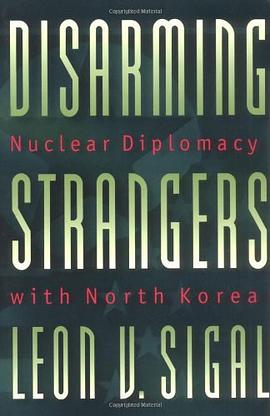

具体描述
Long before Germany's blitzkrieg swept the West, European leaders had received many signals of its imminence. Stalin, too, had abundant warning of German designs on Russia but believed that by avoiding "provocative" defensive measures he could avert the attack that finally came in June 1941. And the stories of the Japanese attack on Pearl Harbor, the Korean War, and three Arab-Israeli conflicts are replete with missed opportunities to react to unmistakable warnings. Richad K. Betts analyzes surprise attacks during the mid-twentieth century to illustrate his thesis: surprise attacks occur, not because intelligence services fail to warn, but because of the disbelief of political leaders.
"Although the probability is low that the United States will fail to deter direct attack by the Soviet Union," Betts says, "the intensity of the threat warrants painstaking analysis of how to cope with it." His own investigation of the historical, psychological, political, diplomatic, and military aspects of his subject heightens understanding of why surprise attacks succeed and why victim nations fail to respond to warnings. In discussing current policy he focuses on the defense of Western Europe and applies the lessons of history to U.S. defense planning, offering detailed recommendations for changes in strategy. Obviously some of the potential dangers of military surprise cannot be prevented. The important thing, he emphasizes, is that "without forces that exceed requirements (the solution Moscow appears to have chosen), it is vital to ensure that what forces exist can be brought to bear when needed."
作者简介
目录信息
THE PAST
2. Sudden Attacks in World War II
3. Sudden Attacks in the Postwar Era
4. Why Surprise Succeeds, I: Operational Causes
5. Why Surprise Succeeds II: The Fog of Peace
THE FUTURE
6. The NATO Central Front, I: Politics
7. The NATO Central Front, II: Operations
8. Nuclear Surprise
9. Beyond The Central Front
CONCLUSIONS
10. Hedging Against Surprise
Index
Figure 6-1. Comparisions of Warsaw Pact and NATO Ground Forces, Central Front
Figure 6-2. Ratio of Soviet Forces ALone to Total NATO Forces
Figure 9-1. Sensitivity of Effective Intervention to Sealift and Warning
· · · · · · (收起)
读后感
评分
评分
评分
评分
用户评价
相关图书
本站所有内容均为互联网搜索引擎提供的公开搜索信息,本站不存储任何数据与内容,任何内容与数据均与本站无关,如有需要请联系相关搜索引擎包括但不限于百度,google,bing,sogou 等
© 2025 book.wenda123.org All Rights Reserved. 图书目录大全 版权所有




















